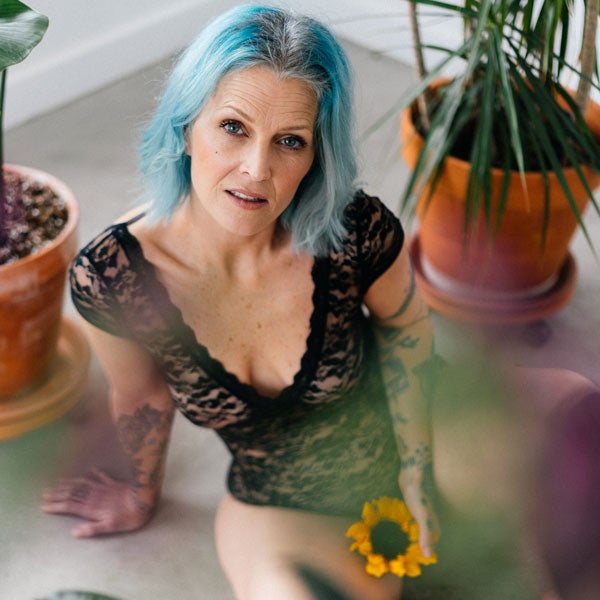
Almost all of us are taught from an early age that monogamy is the only (or only acceptable) relationship dynamic and that we should all want to be in a partnership with that structure. But as stigmas around different relationship styles diminish, more people are rejecting the traditional structure of monogamy and are creating new rules for their relationship dynamics.
Monogamous v.s. Non-monogamous
Before we discuss the different styles of relationships other than monogamy, we must first define what monogamy is. Monogamy is a relationship structure where one individual has one single partner throughout their life or at a time. This partner is the only person with whom they exchange sex, love, intimacy, and affection with. The prevalence of monogamy as the standard relationship style within society has a long and complicated history that can be linked with many things including religious ideology and industrialization. While certainly not always the case, social constructs like religious marriage that uphold the importance of monogamy have been and still are often used as a monetary and social tools to bind families and their wealth together.
Non-monogamy is an umbrella term for every relationship style other than monogamy. Essentially any relationship where there are more than two people engaging in sexual and romantic bonds, whether temporarily or ongoing, can be considered non-monogamous. Sometimes this term is used by individuals to describe themselves in an effort to communicate the kind of relationship styles they are interested in engaging with.
Types of Non-monogamous Arrangements
Monogamish - Partners who are in a monogamish agreement are, for the most part, following the rules of monogamy most of the time, but occasionally exceptions are made for sexual play. This could be something partners engage in together or separately, but usually isn’t an ongoing element in their relationship.
Swinging - Sometimes referred to as partner swapping or party play, swinging refers to couples who like to trade or switch partners for a period of time (usually an evening or few hours) to engage in sexual play. Most likely these activities take place at an arranged event or venue like a sex club or swingers party.
Group Sex (Threesomes, Orgies etc) - Group sex, in all of its variations, is typically known as sex involving more than 2 partners. A couple in a relationship can engage in group sex on occasion as part of a monogamish agreement, or as a ongoing arrangement. Partners will usually set up boundaries on who they want to have sex with, how often, where, and what kind of relationships they want to maintain (or not) with people afterwards.
Casual Relationships / Friends With Benefits - Not often thought of as a non-monogamous partnerships, casual sexual relationships and friends with benefits do actually have many of the same arrangements as other open relationship styles. While partners don’t usually consider themselves “together”, they do engage in sexual activities with one another while also allowing their partner to do the same. Usually these relationships focus on the sexual elements and aren’t so much about love and intimacy.
Open Relationships - This is where one or both members of a committed relationship are free to have sex with other people. Open relationships are unique and individuals are free to work out the rules and structure of the relationship between themselves.
Polyamory - Polyamory can be a relationship style or a personal identification. People who are polyamorous have multiple sexual and romantic partners. Sometimes people will have primary partners or their main relationship, of which they then have additional partners to compliment this arrangement.
Triad, Quad, and Group Relationships - Partners who are in a multi-person relationships usually only engage in sexual and romantic relations with one another, thought these restrictions are flexible. Sometime people will live together as a unit and offer support and structure to each other's lives. Group relationships can start as a couple and expand or can be formed by multiple people at one time.
Relationship Anarchy / No Rules Relationships - People who subscribe to relationship anarchy reject all rules and structure around their relationships. Usually it is an “anything goes” agreement in an effort to focus on individual desires and wants without compromise.

Ethical non-monogamy
The term ethical non-monogamy (sometimes coined consensual non-monogamy) has gained traction recently for people who are describing their non-monogamous agreements. Adding the word ethical implies that everyone in the arrangement is being treated respectfully, fairly, and has given their enthusiastic consent to the terms of the relationship.
Unfortunately, the guise of non-monogamous relationships or polyamorous identities have been used by abusive and inconsiderate partners to “get away with” or cross a partner’s boundaries. The truth is that you can be in an open relationship and still cheat. The difference between violating and respecting a partner's boundaries is communication and permission.
Are you interested to try?
Having fears about introducing a structure of non-monogamy into your current relationship or seeking it in a future partnership is completely normal. It can be hard to picture a relationship working any other way that monogamously if that’s all you’ve experienced and been exposed to. The beauty to a non-monogamous agreement is that you get to make all of the rules and evolve them to fit your arrangement overtime.
Just like any relationship style, non-monogamous agreements take work to maintain. Though many people in more open styles of relationships have higher sexual satisfaction, they still have to deal with feelings of jealousy and insecurity. To make a non-monogamous relationship work, it takes a lot of vulnerability to have conversations about these feelings in an effort to either overcome them in time or create boundaries that make you feel more secure. It can be an unusual thing feeling engaging with emotions like jealousy, instead of trying to avoid them altogether. It may take some practice, but you'll eventually get used to analyzing, understanding, and communicating your emotions freely.
If you’re interested in opening up your current relationship, you need to have a conversation with your partner to see where they are at on the topic. It is extremely common for both parties not to agree, and that’s ok. Some partners may need time to acclimate to the idea, while others may never be comfortable with non-monogamy. These boundaries are fair to have — it’s up to you to decide if you can compromise to make the relationship successful or not. If you’re seeking non-monogamous relationships in the future, communicate this to new partners early on. Many people choose to disclose this information when meeting someone or even in their online dating profile.
Remember, do not let anyone shame you for your wants in a relationship structure. Just because they may not be aligned with someone else's doesn’t mean they are wrong, they are simply different.

Advice from real people in non-monogamous arrangements
Jin, they/them
“I love being poly, especially for my emotional wellbeing. I think monogamy is tied into ideas of possession and partners owning one another, which are harmful. I’ve tried every other relationship style and being polyamorous really works for me best, but it takes work.
For me, monogamy had no honesty, no communication and a lot of fear. I felt like I was forced into being monogamous due to my upbringing and not who I really was.
To be successful in a poly relationship you need communication, honesty, exploration, and self-awareness. Know your desires and work at communicating them to your partner. There is no right and wrong in relationships, just remember to be safe.”
MacKenzie, She/her
"For Dan and I, always being open to returning to conversations has been a key to our non-monogamous relationship. There are occasions where, no matter how good our intentions are and how willing we are to talk about things, sometimes we just aren’t understanding one another or one of us is struggling. It’s nice to know that we can always come back to our conversations and that nothing we say is irreversible.
I see so many couples struggling to talk about things for fear that they will ask a question or say something that will have some devastating, irrevocable effect on their relationship. Early on in our relationship, we established that that kind of fear wasn’t a dynamic we wanted and it’s helped a lot! We like to say “This isn’t fragile.”.
Dan, He/him
"It’s so hard to know how you’re going to feel in any situation - especially when it comes to jealousy. So as far as boundary setting, I’d call our style “cautiously winging it.” We put ourselves in situations and just try things. Then after a date or during an experience we check in. And the next day we check in again - and often the following day - because sometimes reactions aren’t immediate. And new feelings can be hard to put words to right away. But doing these things has helped build a vocabulary for it. And working through a few situations where I had some intense feelings of fear and jealousy has given me so much confidence in the strength our relationship and our ability to take risks together. That’s allowed us to have a lot of really rewarding and beautiful experiences that I never thought possible."
Alexis, They/them
"I would say the biggest thing I’ve learned is that conflict is inevitable and when issues like jealousy or miscommunication come up, they don’t have to doom a relationship and maybe they shouldn’t. My experience is that when issues like this come up they are an opportunity for us as individuals and within the container of our relationships to work through what old habits and traumas we are carrying around jealousy, dishonesty, issues of ownership and property, if we can find the strength enough to be vulnerable and work through them with ourselves and our partners.
Like we tend to have this storybook view of things that if everything doesn’t work out without a conversation then it’s not meant to be, but that’s not really realistic. Sustainable non-monogamous or even monogamous relationships take a lot of conversation, a lot of vulnerability, a lot of willingness to be in the pain and discomfort when we get triggered around these issues."
Anastasia, She/her
"If you are already in a relationship and trying to open it up, go slow and take stock of your expectations (for yourself, your partner, or whoever else you are involving). It can be so tempting to flex your relationship style, to try to grow very quickly when someone you love is (or is exploring being) poly, or when you suddenly have a crush and realize it is possible to care deeply for two people at the same time. Slow down. There is all the time in the world to figure this out and be kind. Take stock of your own desires, edges, and firm “no”s. Let your partner(s) do the same. Change cannot be forced, it must be felt out."



